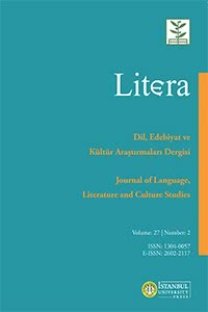Music, Social Critique and Utopian Vision in The Spirit of Utopia and Dawn of Humanit
This article is about two important texts of German expressionism: Ernst Bloch’s The Spirit of Utopia (1918/1923) and Kurt Pinthus’ Dawn of Humanity (1919). The Spirit of Utopia is considered Ernst Bloch’s most important early philosophical work. Dawn of Humanity is regarded as the most representative and influential anthology of German expressionist poetry. Its editor is Kurt Pinthus. The aim of this article is to explore thematic affinities between The Spirit of Utopia and Dawn of Humanity. This article is divided into three parts: Introduction, main part and conclusion. The main part is subdivided into three sections: The first section deals with the conception of Dawn of Humanity as a symphony and with Bloch’s views on music. Special attention is given to the importance of the socalled humanity melody by Ludwig van Beethoven for Bloch and Pinthus. The second section focuses on social critique in The Spirit of Utopia and selected poems of Dawn of Humanity. The poems selected for discussion are: Alfred Wolfenstein’s City Dwellers and The Heart, Georg Heym’s The War, and Karl Otten’s Worker!. Special attention is given to the problems of isolation, alienation, exploitation and war. The third section attempts to trace utopian vision in selected poems of Dawn of Humanity and in The Spirit of Utopia. The poems selected for discussion are: Johannes R. Becher’s Human, Rise, Kurt Heynicke’s Gethsemane and Ernst Stadler’s Dialogue. This section pays special attention to the themes of brotherhood, reconciliation, communion, redemption, the cultural heritage and home.
Keywords:
Literature, philosophy, music, utopia German expressionist poetry,
___
Benjamin, W. (1978). Briefe I. Frankfurt am Main: Suhrkamp.Bloch, E. (1938/ 1969). Diskussion uber Expressionismus. In F. J. Raddatz (Hrsg.), Marxismus und Literatur: Eine Dokumentation in drei Bänden (S. 51-59). Hamburg: Rowohlt Paperback.
Bloch, E. (1971). Pädagogica. Frankfurt am Main: Suhrkamp.
Bloch, E. (1975). “Curriculum Vitae”. In L.J. Pongratz (Hrsg.), Philosophie in Selbstdarstellungen. Hamburg: Felix Meiner Verlag.
Bloch, E. (1921/ 1976). Thomas Münzer als Theologe der Revolution. Frankfurt am Main: Suhrkamp.
Bloch, E. (1923/ 1985). Geist der Utopie. Zweite Fassung. Frankfurt am Main: Suhrkamp.
Bloch, E. (1959/ 1985). Das Prinzip Hoffnung. Frankfurt am Main: Suhrkamp.
Bloch, E. (1965/ 1985). Literarische Aufsätze. Frankfurt am Main: Suhrkamp.
Kazin, A. (1976). Introduction. In A. Kazin (Hrsg.), The Portable Blake (S. 1-55). London: Penguin.
Markun, S. (1977). Ernst Bloch in Selbstzeugnissen und Bilddokumenten. Reinbek bei Hamburg: Rowohlt.
Pinthus, K. (Hrsg.) (1996). Menschheitsdämmerung: Ein Dokument des Expressionismus. Hamburg: Rowohlt Taschenbuch.
Serke, J. (1983). Die verbrannten Dichter. Frankfurt am Main: Fischer.
- Yayın Aralığı: Yılda 2 Sayı
- Yayıncı: İstanbul Üniversitesi
Sayıdaki Diğer Makaleler
Belgelerle İstanbul Üniversitesi Edebiyat Fakültesinde Mülteci Bilim Adamları
Emile Ajar / Romain Gary’nin Yalan- Roman’ında Kendi Olmanın Olanaksızlığı
Jean Raspail, Michel Houellebecq, and Jenny Erpenbeck: Acknowledging the Barbarian Within
Tarihsel ve Coğrafi Açıdan Tekirdağ ve Çevresi: Kent, Kültür ve Kimlik
